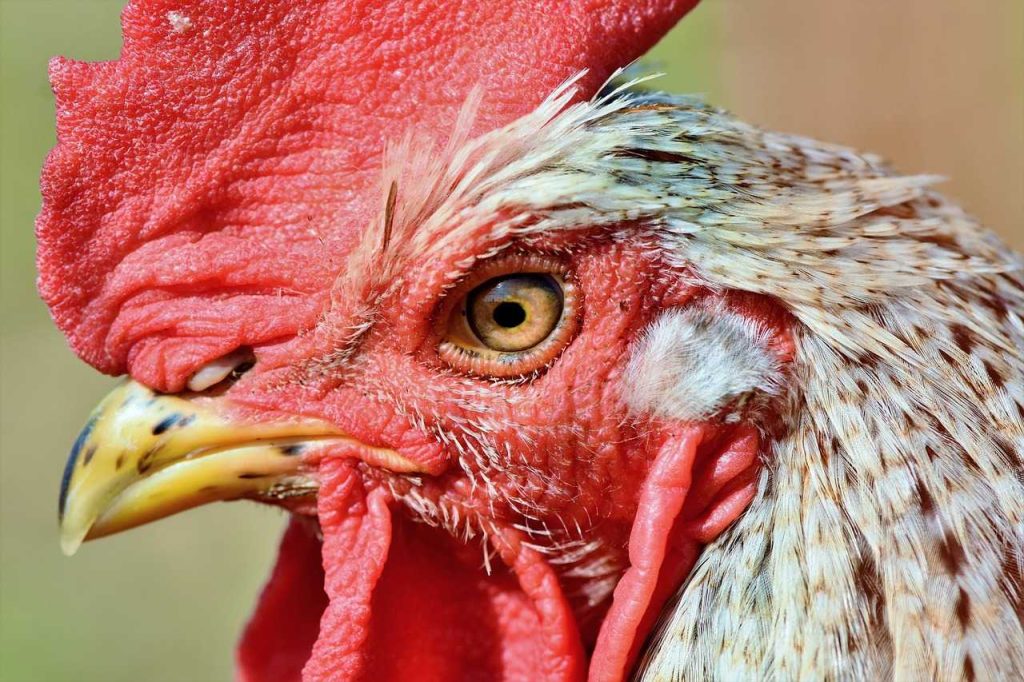Raising chickens can be a rewarding venture, whether for fresh eggs, meat, or even companionship. However, before diving into the world of chicken-keeping, it’s essential to make informed decisions. There are many factors to consider when buying chickens, from the breed and age to health and housing requirements. Buying chickens without proper knowledge can lead to health problems, poor egg production, or difficulties in managing your flock. This blog will guide you through the important things to know before purchasing chickens, ensuring you make the right choices for your backyard or small farm.

Why Should You Raise Chickens?
Before getting into the specifics of what to know when buying chickens, let’s explore why many people choose to raise chickens:
- Fresh Eggs: One of the main reasons for raising chickens is the steady supply of fresh eggs, which are more nutritious than store-bought ones.
- Sustainable Living: Chickens help reduce food waste by consuming kitchen scraps, and their droppings can be composted to enrich the soil.
- Educational Experience: Raising chickens is a great way for families to learn about responsibility, animal care, and agriculture.
- Pest Control: Chickens love to forage and will naturally help control pests like bugs, weeds, and ticks in your garden.
Now that we understand the benefits, let’s dive into what you need to know before bringing chickens home.
1. Choosing the Right Breed for Your Needs
One of the first things to consider is which breed of chicken is best for you. Chickens come in a variety of breeds, each with unique characteristics. The breed you choose will depend on what you’re looking for—eggs, meat, or both.
Egg-Laying Breeds:
- Leghorn: Known for laying large white eggs and high production (250–320 eggs per year), Leghorns are ideal for those who want a steady supply of eggs.
- Rhode Island Red: Excellent layers of large brown eggs, producing 250–300 eggs annually. They’re also hardy and suitable for colder climates.
Meat Breeds:
- Cornish Cross: The go-to breed for meat production. Cornish Cross chickens grow fast and have excellent meat quality, making them popular among homesteaders.
Dual-Purpose Breeds:
- Plymouth Rock: Known for both good egg production and quality meat, this breed is great for those who want the best of both worlds.
- Orpington: Another dual-purpose breed, Orpingtons are friendly and reliable layers of large eggs, while also providing good meat.
Pros:
- You can choose a breed tailored to your specific needs (eggs, meat, or both).
- Some breeds are better suited for colder climates, while others thrive in warmer regions.
Cons:
- Certain breeds may require more space, food, or attention than others.
- Specialized breeds (e.g., for egg production) may not be good for meat and vice versa.
2. Where to Buy Chickens: Reputable Sources

When buying chickens, it’s crucial to purchase from a reputable source. Chickens can be bought from hatcheries, local farms, or breeders, but each option comes with pros and cons.
- Hatcheries: Hatcheries offer a wide variety of breeds and usually ship day-old chicks directly to you. The chicks are typically vaccinated and come with health guarantees.
- Local Farms: Buying from a local farm allows you to see the living conditions of the chickens. This option is ideal if you want to purchase mature chickens or pullets (young hens) that are closer to laying eggs.
- Breeders: Breeders often specialize in specific breeds and can provide detailed knowledge about the chickens’ lineage, temperament, and health.
Pros:
- Buying from reputable sources ensures that the chickens are healthy and free from diseases.
- You can choose chickens at different stages of life, from chicks to mature layers.
Cons:
- Hatchery chicks may require more care initially, especially if you’re not set up to brood them.
- Local farms and breeders may have limited availability of certain breeds or flock sizes.
3. Age Matters: Chicks, Pullets, or Mature Hens?
When deciding to buy chickens, their age plays a key role in how quickly you’ll reap the benefits of eggs or meat.
- Chicks: If you’re raising chickens from the start, day-old chicks are a popular option. They are affordable and give you the opportunity to bond with them from a young age. However, chicks require a brooder, heat lamps, and special care for the first few weeks.
- Pullets: Pullets are young hens that are about 16–20 weeks old and just about to start laying eggs. They’re a great option if you want eggs sooner without the challenges of raising chicks.
- Mature Hens: If you want immediate egg production, buying mature hens that are already laying is a good choice. However, they might not bond with you as easily as chicks or pullets and may have a shorter laying life.
Pros:
- Chicks are more affordable and allow you to raise chickens from the beginning.
- Pullets give you a head start on egg production without the challenges of raising chicks.
Cons:
- Raising chicks requires more equipment and effort.
- Mature hens might be more expensive and could be nearing the end of their egg-laying cycle.
4. Checking Chicken Health: What to Look For

It’s essential to assess the health of any chicken before buying it. Healthy chickens should be alert, active, and have bright eyes and clean feathers.
Here’s a checklist of what to look for:
- Feathers: Healthy chickens should have smooth, clean feathers. Patchy or missing feathers may indicate poor health or overcrowded living conditions.
- Eyes: Clear, bright eyes are a sign of a healthy bird. Dull or cloudy eyes can signal illness.
- Comb and Wattle: The comb and wattle (the red skin around the head) should be bright red and free from scabs or discoloration.
- Droppings: Check the droppings for signs of worms, diarrhea, or other health issues. Healthy chickens have firm, dark brown droppings with a small amount of white urates.
Pros:
- Ensuring you buy healthy chickens minimizes the risk of introducing diseases to your flock.
Cons:
- Not all health problems are visible, so buying from reputable sources is crucial.
5. Housing and Space Requirements
Before buying chickens, ensure you have adequate housing and space for them. Chickens need a secure coop to protect them from predators and provide shelter.
- Coop Size: Each chicken should have at least 4 square feet of space inside the coop and 10 square feet in an outdoor run.
- Ventilation: A well-ventilated coop prevents respiratory diseases and keeps the chickens healthy.
- Perches and Nesting Boxes: Chickens need perches to roost at night and nesting boxes for laying eggs. Ensure your coop has enough of both.
Pros:
- Proper housing keeps chickens safe and healthy, leading to better egg production and well-being.
Cons:
- Building or buying a chicken coop can be costly if you’re starting from scratch.
6. Local Regulations and Permits
Before purchasing chickens, check your local laws and regulations regarding chicken-keeping. Some areas limit the number of chickens you can keep, while others may require permits.
- Zoning Laws: Make sure you know the zoning regulations for your area, especially if you live in a suburban or urban location.
- Noise and Smell: Roosters can be noisy, and large flocks may produce strong odors, so be mindful of how this might affect your neighbors.
Pros:
- Knowing the local laws ensures that you avoid fines or legal issues.
Cons:
- Some areas may have restrictive laws, limiting the number of chickens or prohibiting roosters.
Conclusion
Buying chickens is a big decision, and understanding what to look for can save you from future headaches. Whether you’re raising chickens for eggs, meat, or both, choosing the right breed, sourcing healthy chickens, and providing proper housing are key factors for success.
By following these tips and ensuring you meet your chickens’ needs, you’ll enjoy the benefits of fresh eggs, meat, and the satisfaction of raising happy, healthy birds. Happy chicken buying!




